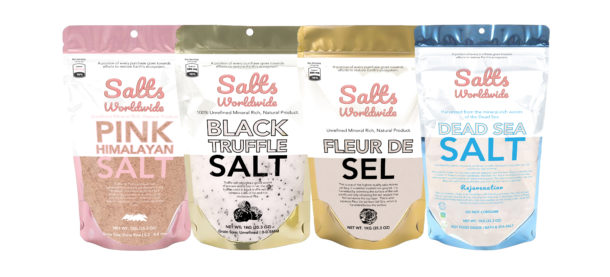The Dead Sea is known for its high magnesium content, which is one of its benefits. In addition to being beneficial to health, these salts are also safe for people with psoriasis. Learn more about the benefits of Dead Sea salt and why it’s important to source it responsibly.
Health benefits of Dead Sea salts
Dead Sea salts are an effective treatment for a wide range of health conditions. These salts come from the Dead Sea, Israel’s deepest and saltiest lake. They have been known for their therapeutic benefits since Biblical times. They can help reduce swelling and relieve muscle cramps and other painful conditions. They can also help control water retention and make your skin smoother. They also help to reduce the appearance of cellulite, which is the result of fatty deposits on the skin.
The Dead Sea salts are also effective for treating respiratory conditions. Proper use of Dead Sea salts helps you breathe easily and reduces the symptoms of coughing and chest pain. They also remove mucus from your lungs and open up the air passage. This means that the salts can help reduce the symptoms of psoriasis.
Dead Sea salt is also great for soothing muscles and joints. It contains Bromide, which helps relieve muscle cramps and relieve joint soreness. Dead Sea salt also acts as a natural exfoliator due to its high sodium content. It removes dead skin cells and restores skin moisture.
Dead Sea salt is also an excellent treatment for acne. Its antimicrobial properties make it an effective solution for the skin problem. It also reduces the redness and swelling of acne-prone skin. It can also help treat excess fat patches and psoriasis. By massaging your face with the salt, you can even improve your skin’s appearance.
The Dead Sea contains a lot of nutrients and minerals that are useful in reducing wrinkles. The salts contain 21 different minerals, which can promote hydration and rejuvenation.
Sustainable harvesting of Dead Sea salts
A new project is focusing on sustainable harvesting of Dead Sea salts. Known as Salt Harvesting, the project aims to provide a long-term solution with minimal environmental impact. The project will help maintain the health of the Dead Sea basin and the local communities and industries. It will use precipitated salt from Pond 5 and transfer it to the northern Dead Sea basin.
The project will include building a dredger, a marine excavator, that will be used to harvest salt from the Dead Sea. The dredging project will create jobs and promote tourism in the region. The new dredgers are designed to reduce noise pollution and minimize impact on the local community.
The Dead Sea is home to several types of natural salts. These include calcium chloride, sodium chloride, and potassium chloride. These salts are essential for human health and industrial processes. The salts are harvested for their health benefits and industrial uses around the world. The salt industry relies heavily on Dead Sea salt for many products.
Israel and Jordan both have interests in keeping the Dead Sea filled with water. It is home to unique biological bacteria, and the water is rich in minerals. Regenerating the Jordan River and using less seawater for desalination will help the Dead Sea regenerate. It will also improve relations and political compromises between the two countries.
The Dead Sea salt has important minerals such as magnesium and sulfate. However, it does contain bromide, which is toxic. The high bromide content made Dead Sea salt inedible for many centuries, but modern technology has mitigated its toxicity. The salt is harvested from briny pools and transforms into crystals over eight months. The bromide is then separated from the salt, which is then refined.
Magnesium content of Dead Sea salts
Magnesium is an important mineral that plays a critical role in the body. It can help prevent inflammatory diseases, reduce the risk of depression, and improve sleep. Magnesium is also important in regulating pH levels, heart rhythm, and muscle contraction. Magnesium is found in varying amounts in Dead Sea salt.
The magnesium salts in Dead Sea water are known to have anti-inflammatory and anti-bacterial properties and have been shown to improve inflammatory conditions. One study found that magnesium salts improved the barrier function of the skin, reducing roughness and redness. It also improved skin hydration. This is because magnesium salts bind to water and boost skin absorption.
Other benefits of magnesium-rich Dead Sea salts include anti-bacterial and detoxification properties. Magnesium is particularly beneficial for healing aches and pains. It also acts as a natural immune system defender. Magnesium is one of 21 minerals found in Dead Sea salt.
Magnesium flakes can also promote skin health. They help to maintain the skin’s lipid barrier, soothe muscles and soothe irritated skin. Magnesium also helps to maintain bone health and encourage calcium absorption. Magnesium flakes can also promote better blood flow and relieve muscle pain.
Magnesium-rich Dead Sea salts have more than 20 minerals, and they have more than 30 times the amount found in Epsom salts. Epsom salts, on the other hand, contain magnesium sulfate, which is less absorbable. Unlike magnesium chloride, magnesium sulfate does not absorb as quickly into the body.
Epsom salts contain up to 60 percent magnesium and 8% sodium. They can also contain trace amounts of several rare minerals. However, they are not recommended for consumption. They are primarily used for medicinal purposes.
Safe for psoriasis
While there is no specific diet for psoriasis, it’s important to eat foods that promote overall health. That’s why it’s important to avoid ultra-processed foods, which are generally loaded with sugar and saturated fats. Rather, focus on foods that have natural healing properties and don’t worsen the condition.
To help minimize the risk of skin lesions, try to limit your time spent in swimming pools and other places with chlorinated water. Taking a bath in salt water can reduce your symptoms and remove dead skin cells that can lead to psoriasis flare-ups. As a result, more people are switching to swimming in saltwater pools.
While there’s no specific cure for psoriasis, you can try topical treatments, which are ointments and creams that can be applied to the skin. They can take up to six weeks to produce noticeable results. If the psoriasis is located on your scalp, your doctor may recommend a combination of an ointment and shampoo. These ointments and shampoos can make your skin softer and help reduce your itching and discomfort.
Another popular topical treatment for psoriasis is tea tree oil. The oil contains anti-bacterial, anti-fungal, and anti-inflammatory properties. You can apply tea tree oil directly to the skin or mix it with olive oil for a topical treatment. However, you must avoid using tea tree oil in the sun, which may make the condition worse.
Alternative therapies like herbal products and diets can help ease the symptoms of psoriasis. These methods are not part of conventional medical treatment, but are largely safe and effective for psoriasis sufferers.
Safe for eczema
Dead Sea salt has anti-inflammatory properties that can reduce inflammation and itching, which may help people with eczema. It is made from the salty water of the lowest place on Earth, making it one of the most saline bodies of water. It is also a soothing experience, which may be a benefit for people with eczema.
The magnesium chloride found in Dead Sea salts may help relieve itchiness caused by eczema and psoriasis. A 2005 study of atopic dermatitis participants found that magnesium chloride derived from the Dead Sea has positive effects on the skin barrier. The results showed that it improved hydration and reduced roughness and inflammation.
The mineral magnesium is one of the most effective anti-inflammatory ingredients found in sea salt. It also has anti-microbial properties that inhibit the growth of fungi and bacteria. The minerals in sea water also help keep skin soft and moist. In addition, the anti-inflammatory benefits of dead sea salt help reduce swelling and itching in the skin.
Dead Sea salt is also rich in zinc, which helps repair the skin. It helps to bind water to the skin and improve wound healing. Besides these benefits, the mineral also has anti-inflammatory and detoxifying properties. When combined with warm water, it can penetrate the skin and have a relaxing effect.
A warm bath is one of the best ways to relieve the symptoms of eczema. After bathing, it’s best to apply moisturizer. It is also beneficial to apply colloidal oatmeal to the affected skin.



